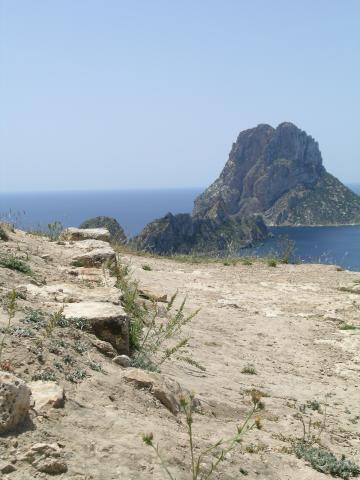
CALL FOR PAPERS
State of the Field 2023:
Archaeologies of the Mediterranean
Friday, 14 April – Saturday, 15 April 2023
Joukowsky Institute for Archaeology and the Ancient World
Brown University, Providence, Rhode Island
Abstract deadline: 31 January 2023
Mediterranean Archaeology sits at an often complex intersection of the fields of Archaeology, Classics, Anthropology, History, and Art History. While several of these fields, in particular Classics and Anthropology have begun periods of significant critical self-reflection that explicitly question their present and future, Mediterranean Archaeology is doing so in a more fragmented manner. This lack of coherence may perhaps be ascribed to institutional fragmentation, in particular in US academia, but it can also be traced to its intricate location at the intersection of multiple academic traditions. As a result, Mediterranean archaeology has struggled to identify its own priorities and find its own voice for challenging traditional narratives and approaches and, as a result, risks being subsumed by adjacent disciplines with louder voices, despite many possible valuable contributions.
In light of these challenges, and especially considering the rapid pace of developments in archaeological methods and theory, the time is ripe to consider both the state of our field at this moment in time and to discuss where it can and should go in the future. Nearly every facet of Mediterranean Archaeology may be questioned and, indeed, we must do so in order to guarantee the continued relevance of our subject in both the ancient and modern worlds.
Brown University’s Joukowsky Institute for Archaeology and the Ancient World will host a conference titled State of the Field 2023: Archaeologies of the Mediterranean on April 14-15, 2023. This meeting builds on a tradition of ‘State of the Field’ workshops hosted by the Joukowsky Institute since 2011 that reflect upon current trends in archaeological practice. This year’s conference discusses the place of Mediterranean Archaeology in the modern world in North America, Europe and the Mediterranean. We intend to examine academic traditions and assumptions as well as contemporary institutional and political structures that frame our theoretical and methodological engagement with the material culture of the ancient Mediterranean and adjacent regions in order to ensure that the field maintains relevance into the future.
We invite submissions for papers of approximately 20 minutes by sending an abstract of no more than 350 words to [email protected] by 31 January 2023. We will cover travel expenses and accommodation for speakers, and especially encourage submissions from early-career researchers.
Suggested themes can include, but are not limited to:
- Diversity – How has the field fared in diversifying its participants at the undergraduate, graduate, and faculty levels? This can include topics of gender, class, race and any other background. Have we succeeded in teaching and researching more diverse subjects that better account for ancient realities? What remains to be done?
- Definitions – How do we define our field of study? What is its geography, chronology, and cultural scope? What subjects should we include, and what theories and methods should be used? How do we fit into current academic and university structures? Why does US academia not have Archaeology departments anymore? What are the consequences of this departmental division and what can we do about it? What do we have in common with other fields, and what is unique about our own?
- Relationships – How do we relate to non-academic structures, especially State-run or commercial (i.e., rescue or preventative) archaeology? What role do foreign schools and institutions serve in forming these relationships? How do we engage responsibly with local communities in the places where we conduct fieldwork?
- Historiography – How have the last two centuries (or more) of archaeological practice shaped the modern field, and should they be maintained or discarded? Have we done enough to examine and change the colonial foundations of the discipline? What can we do better?
- Responsibilities – How do we communicate the significance of our field to the public, both at home and abroad? What role does public archaeology play in our field? How has pedagogy changed, and how might it change further? What role do museums and archaeological parks play in our public relationships? How should items and exhibits be displayed?
- Narratives – How has our field shaped knowledge of the past? Are current practices changing narratives? What existing narratives remain to be challenged?
For questions about this Call for Papers, or about the conference, please see our conference website, www.brown.edu/go/sotf2023 or email [email protected].
